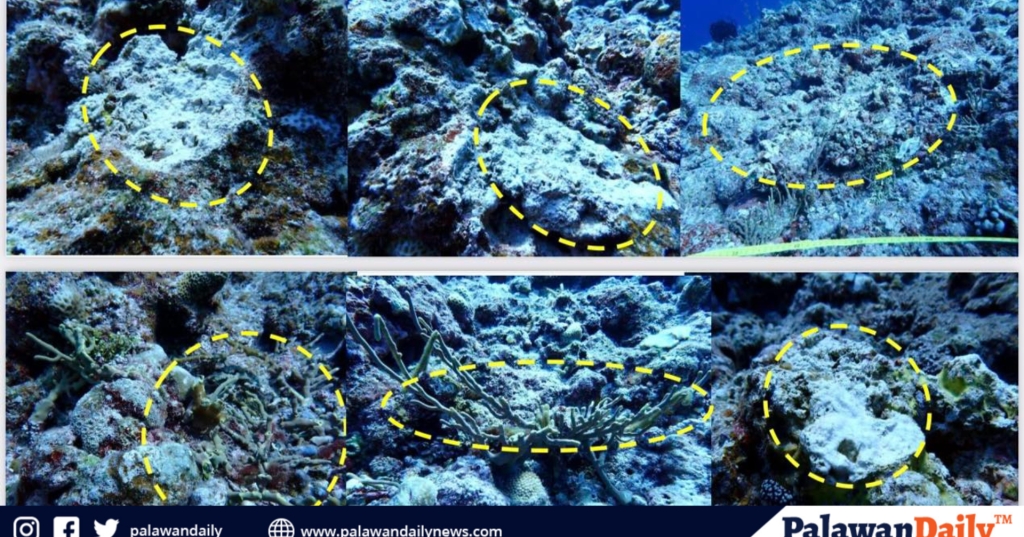Marine scientists from the Palawan Council for Sustainable Development (PCSD) and the National Task Force for the West Philippine Sea (NTF-WPS) are seeking a penalty of over P11 million from the operator of a Chinese fishing militia vessel that anchored off a cay near Pag-asa Island, damaging over 460 square meters of coral reef.
“The absence of flattened reef structures indicates the vessel did not run aground on the reef,” said Mark Ace Dela Cruz, chief of the PCSD’s Habitat Management System.
“Instead, the observed damages such as broken fragments of branching hard and soft corals and massive corals were caused by the dragging of the sea anchor and/or anchor line.”
According to the assessment, approximately 30 percent of the coral in that area was damaged. Combined with surrounding impact, the total damage area was recorded at 464 square meters.
The PCSD said the parachute anchor could not be retrieved due to its weight. Dr. Benjamin Gonzales, the marine scientist who led the assessment, warned that if left in place, the parachute would continue to block sunlight from reaching the corals, causing their death.
“This may spark a series of unfortunate events that may lead to an environmental catastrophe,” Gonzales said.
“This has implication sa ating mga fishermen who fish in the West Philippine Sea. Kung wala ng corals, wala na ring fish,” he said.
He also raised concern over microplastic pollution, saying that contact between coral and synthetic materials from the parachute may result in microplastics entering marine food chains, including fish consumed by humans.
Board Member Ferdinand Zaballa, Vice-Chairman of the PCSD expressed frustration over the repeated environmental violations occurring within Philippine waters, especially by foreign vessels.
“We will not let this pass without proper accountability. The damaged reefs may not speak, but we must speak for them.”
The PCSD is recommending the collection of P11,159,040 in environmental penalties from the foreign vessel, citing damage to the reef and ecosystem loss within Philippine waters.
